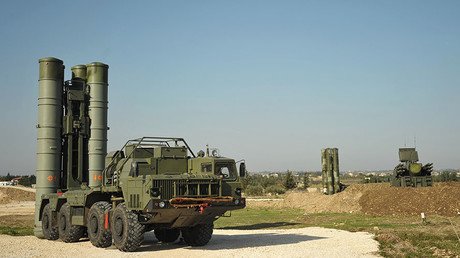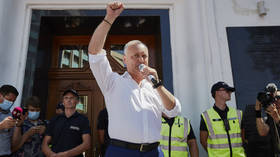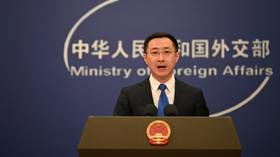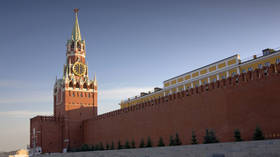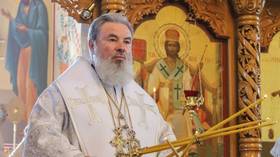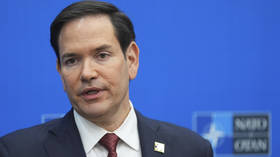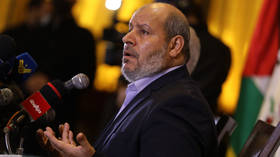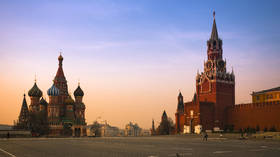Assad: Syria won’t negotiate with foreign terrorists, but only national & patriotic opposition
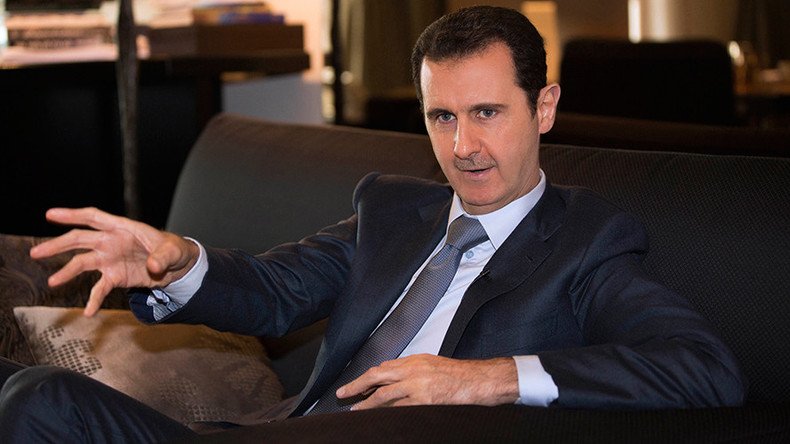
Syria will not negotiate with terrorists to end the conflict on their terms, no matter how hard the West tries to present armed gangs as grassroots political opposition, the country’s President Bashar Assad told Spanish News Agency EFE.
The problem, Assad says, lies with the fact that large portion of armed fighters and terror gangs in Syria are foreign mercenaries, which the US and their allies in the Gulf region are craving to include in the negotiation process.
“Opposition is a political term, not a military term. So, talking about the concept is different from the practice, because so far, we’ve been seeing that some countries, including Saudi Arabia, the United States, and some western countries wanted the terrorist groups to join these negotiations. They want the Syrian government to negotiate with the terrorists, something I don’t think anyone would accept in any country,” Assad told EFE.
At the same time, Assad once again reiterated that his government is always open for negotiations with the real opposition – but emphasized that opposition must be defined.
“Opposition, for everyone in this world, doesn’t mean militant,” Assad stressed. He said that Damascus is already engaged in dialogue with certain armed “groups, not organizations”, so they would lay down their arms in exchange for “amnesty from the government” and a chance to return to “normal life.”
“This is the only way to deal with the militants in Syria. Whenever they want to change their approach, give up the armaments, we are ready, while to deal with them as a political entity, this is something we completely refuse,” Assad clarifies.
An agreement on a peaceful resolution to the crisis, according to Assad, can only be reached with the “real, patriotic, national opposition” that has grassroots in and related to Syria, “not to any other state or regime in the world.”
In Syria “more than 100 nationalities” have united with the government in their fight with the extremists, including Islamic State (IS, formerly ISIS/ISIL), Al-Qaeda and Al-Nusra. Fighting these jihadi groups in the long term should focus on tackling “Wahabi” militant ideology of Islam, Assad said.
“The ideology, something that’s been instilled in the minds of the people or the society in the Muslim world for decades now, because of the Wahabi institutions, because of the Saudi money that's been paid to support this kind of dark and resentful ideology,” Assad said.
“Saudi Arabia and Turkey and Qatar are the main perpetrators in the atrocities of ISIS,” he stressed.
OP-EDGE: This isn't about ISIS, just good old fashioned regime change
In the short term, anti-ISIS combat efforts should focus on cutting the jihadist supply routes of fighters and financing on the Turkish border.
“To solve this problem is to stop the flood of terrorists, especially through Turkey to Syria and to Iraq, and of course we have to stop the flowing of money...to those terrorists through Turkey, and the armaments,” the Syrian president said.
Assad confirmed Russian intelligence data over ISIS oil smuggling activity, explaining why Syrian illegally harnessed oil has no other place to go but to Turkey.
“Most of the oil in Syria is in the northern part of Syria. If they want to export it to Iraq, that’s impossible, because every party in Iraq is fighting ISIS. In Syria, it’s the same. In Lebanon, it’s very far. Jordan in the south is very far. So, the only lifeline for ISIS is Turkey. Those trucks moving the oil from Syria to Turkey, and Turkey selling this cheap oil to the rest of the world,” Assad reasoned.
Assad said that if pressure is stepped up on Turkey, Saudi Arabia, Qatar, “then this conflict will end in less than a year, definitely,” as Syrian army is making impressive gains on the ground.
DETAILS: Kalibr missiles were launched from Kilo-class diesel-electric sub 'Rostov-on-Don' https://t.co/VGp5W91ayGpic.twitter.com/1eQLXAjqhG
— RT (@RT_com) December 8, 2015Commenting on Russian participation in the air campaign against the terrorists in Syria, Assad attributed its success to joint coordination with the Syrian forces on the ground. The Syrian leader says the US coalition has failed to produce any fruitful results because it does not have any significant forces doing the ground work for them in Syria.
“You have to deal with them [ISIS] from the ground, and that’s why when the Russians came and started their participation in the war against terrorism, the achievement of the Russian and Syrian armies in a few weeks was much better than the alliance has achieved during more than a year,” he said.
Another reason for US underachievement is their support – probably indirect – for the extremists, Assad says.
“Actually [the US-coalition] didn’t achieve anything ... because they were supporting ISIS, maybe indirectly, because it was expanding, and you have more recruits coming.”
The Syrian leader also accused the US of lacking the will to fight terrorism. At the same time, Assad criticized the French involvement in Syria following the November 13 attacks as an overdue retaliatory revenge strike.
Putin to MoD: We will always remember fallen comrades, I warn against provocation LIVE https://t.co/RQKjp8gpR6pic.twitter.com/hDeeIft7As
— RT (@RT_com) December 11, 2015“This heavy bombardment is just to dissipate the anger within the French public opinion, not to fight terrorism. If you want to fight terrorism, you don’t wait for a shooting in order to fight terrorism. Fighting terrorism is a principle.”
Russia instead is fighting for a principle, a principle to protect its borders. Furthermore “Russia now, in Syria, they are defending Europe directly,” Assad concluded.
